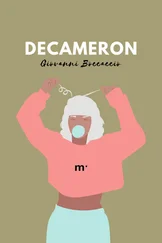“Well, I—” Josephine was interrupted by the muscled passage of two uniformed moving men going through the open door. Both women had to step back to keep from getting body-checked.
“Come inside,” said Bette. “We’ve still got the couch for a few minutes.”
The two went to sit down on the tarpaulin-covered couch.
“Sorry that I don’t have anything to offer you to drink. We just finished up the lemonade. Lyman was supposed to go out for sodas and sandwiches, but I don’t know when that will be.”
“That’s all right. I won’t keep you. I wanted to tell you something about that book I bought from you— The Joy of Cooking .”
“Oh, you were The Joy of Cooking!” Bette said with a grin. “My friend Naomi gave me such a hard time about letting that go for six bits. She said it’s got to be worth twenty dollars at least.”
“At least,” said Josephine, cryptically. “Bette, I came to tell you about something I found inside. It’s — well, here it is. It’s from your Aunt Sue.”
Bette took the envelope from Josephine. She read what was written on the outside and then looked inside and pulled out the check. She didn’t gasp, but her hand went up to her mouth as if she had. “I can’t believe this,” she finally managed to say.
“I guess you would have seen it if you’d — well, it was taped to the page that had the recipe for Jelly Tots.”
Bette smiled at a memory. “Jelly Tots. Oh, that’s funny. That’s rich.”
“I don’t know if your aunt is still around or even if you want to say anything to her, but I thought you should know that it was in there, in case, you know—”
Bette’s smile evaporated. “In case what?”
“I don’t know. If it were me—”
Bette’s look suddenly turned hard. “If it were you, what? You’d go to her and apologize for never taking the time to look inside the wedding present she’d given you?”
“Well, the book was only part of the gift. There was also, as you can see, a check for fifteen hundred dollars. So you and your new husband could build a nice kitchen for your new house.”
“Yes, I read that. I’m fully capable of reading, though I don’t . Lyman and the kids, they’re the readers in the family. You want to know why I didn’t open the book? That’s why you came here, right — to find out why I didn’t know this check was in there? Well, I’m going to tell you, even though you’re a nosy bitch.”
Josephine shrank back.
“My aunt had a lot of money. Lyman and I — we weren’t poor, but every cent we were making was going into saving for a house, our very own house. I asked my aunt for a loan to help speed things along. She’d always said I was her favorite niece, and now she had the chance to prove it. But when we asked her, she said no. I couldn’t believe she could be so cruel. Lyman said she was probably waiting to give it to us at the wedding. I bided my time. We got a lot of wedding checks — everybody knew what it was we really needed going into this marriage. Not Aunt Sue. From Aunt Sue, I got a book. A lousy cookbook. She knew I didn’t like to cook and that I had no intention of learning. I threw it away. It was Lyman who pulled it out of the trash. He said it needed to be on the shelf in the kitchen in case Aunt Sue came to visit. Do you know what I said to that ? When am I going to invite that selfish old crone over here? Well, I never got the chance not to invite her, because she died only a few weeks later. She didn’t leave me anything in her will. She never told me about the check and she didn’t leave me a stingy dime.”
Lyman stepped into the living room. “You need to finish sealing up the boxes in Leiza’s room. The movers are asking for the rest of the boxes.”
Bette nodded.
“What’s wrong?” asked Bette’s husband.
“I’ll tell you later.”
Lyman walked off.
“I don’t think you told me your name,” said Bette.
“I did actually. It’s Josephine.”
“I’m sorry I lashed out at you like that, Josephine. I’m not mad at you. I’m mad at myself. I don’t blame my aunt for what she did. I probably would have done the same thing in her position. To be perfectly honest, I don’t know why Aunt Sue was ever fond of me. She was always a very quiet woman. I’m, well, not . When things bother me, I speak up. Some people don’t like that. Witness the fact that both my son and daughter live in southern California — just about as far as they can get from their mother without leaving the continental United States.”
“The continental United States would also include Alaska.”
“I wish I read more often. I wish I read, period. And cooked. My aunt made the most delicious Jelly Tots.”
“I baked some last night. They’re in the car.”
1962 THROWN A CURVE BALL IN NEW YORK
My stepfather Harvey and I were both enjoying our birthday toys. Our birthdays were only two days apart in early April. My present was a transistor radio that Harvey and Mom let me pick out at Brach’s downtown. I remember going out to my stepfather’s brand new Volkswagen Beetle parked in the driveway, knowing that I’d find him inside, sitting in the driver’s bucket, patiently waiting for the game to start. Harvey was listening to Frank Sinatra on the car radio as I got inside, my new leather-slipcased radio in hand. A thick, sweet cloud of smoke nebulized by his Tiparillo hung in the air.
“We can listen to the game on my new radio,” I offered, holding up my birthday present. (I think it was the rule in 1962 that eleven-year-old boys were supposed to be given transistor radios for their birthdays — especially in families that had qualms about BB guns.)
Harvey took a puff from his slender plastic-tipped cigar, which had just come on the market. He shook his head. “Save the juice in your 9-volt, Scoots. We’ll listen to the bug radio.”
My stepfather knew a thing or two about batteries. He worked for Schenectady’s big General Electric company. He and his fellow scientists and engineers were in the process of inventing the world’s strongest superconducting magnet. Harvey’s team was competing against Bell Telephone Labs for an impressive prize: several cases of top-shelf Scotch — to be sent by the losers to the winners. Harvey probably didn’t tell the Bell folks that he didn’t drink Scotch. His potable of choice was Rheingold, the official beer, as it turned out, of the New York Mets, whose very first game we were about to listen to on station WGY, courtesy of WABC out of New York City.
Harvey was from St. Louis, and a little conflicted. The Mets were playing the Cardinals in Busch Stadium, and Harvey had always been a big fan of Stan “The Man” Musial. On the other hand, he’d lived in New York for the last twenty years and was just as fixed in his belief that the state deserved a National League team — after the demoralizing departure of the Dodgers and the Giants — as the most adamant of Gotham’s born-and-breds. In fact, it was the tragedy of losing those two powerhouse teams and all the sentimental feelings lingering in their wake that played a big role in the Mets acquiring one of the worst teams in baseball.
“A real Geritol bunch — all these former Dodger and Giant coots,” my stepfather joked when he found out whom the team had signed. And he made a similar assessment that day in the car, as one of the broadcast’s three announcers, Bob Murphy, presented the lineup for his radio listeners. Each name elicited either a chuckle and a shake of the head or the designation “Gramps” or “Methuselah” or “No Spring Chicken by any Goddamned Metric.” Harvey didn’t watch his language when it was just him and me. He smoked. He drank his multiple bottles of Rheingold (close at hand this day in a little ice chest on the back seat). He gave me a taste every now and then, so long as I didn’t tell Mom. “Gil Hodges has got to be pushing forty!” he exclaimed when the first baseman’s name was announced. “And Richie Ashburn’s not that far behind him. Oh, good Christ, did I ever tell you the story of Richie and that poor Mrs. Roth — the wife of the sports editor down in Philadelphia?”
Читать дальше












